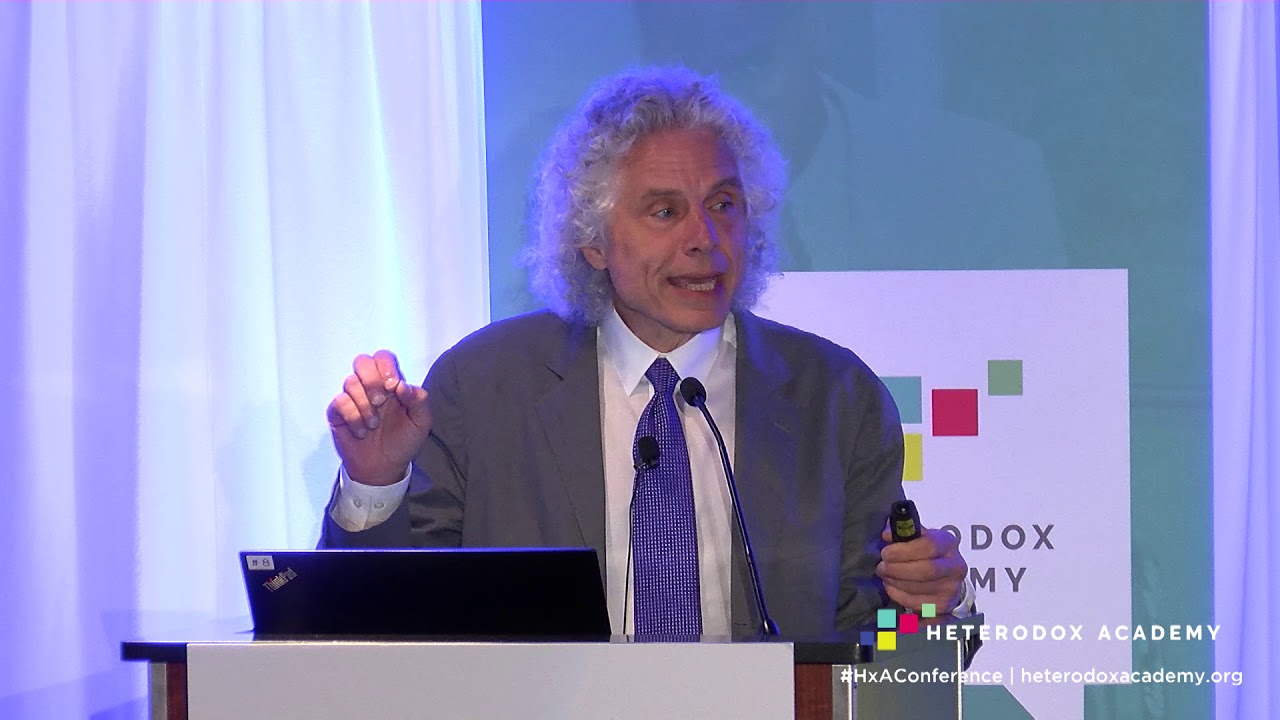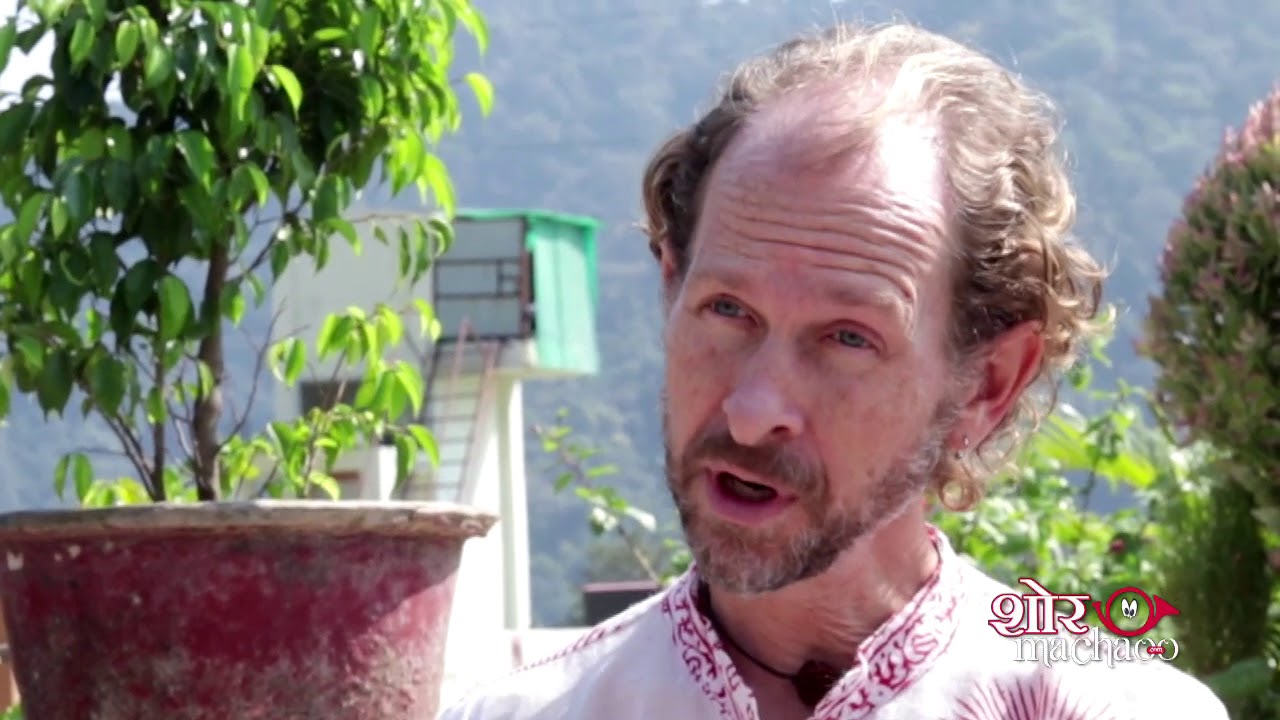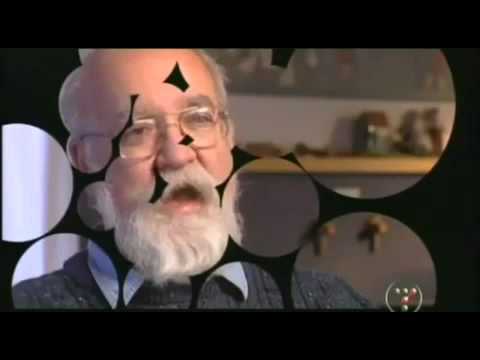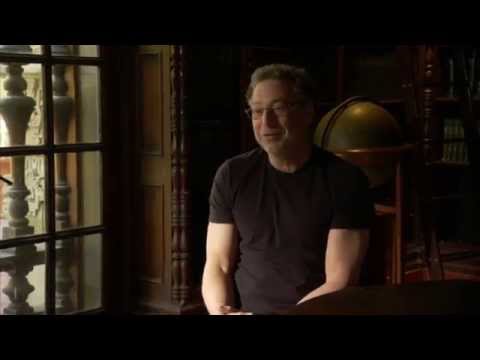Heterodox Academy
Best-selling author Steven Pinker considers why open inquiry, viewpoint diversity, and constructive disagreement matter beyond the academy. He makes the case that healthy colleges and universities equip citizens, scientists, policymakers, parents, and others with the habits of heart and mind necessary to advance the human condition.
Keynote Speaker:
Steven Pinker
Department of Psychology, Harvard University
Talkback Host:
Nick Gillespie
Editor at Large
Reason
In order to address society’s most intractable problems, learners must weave together the best ideas from a range of perspectives. The HxA Annual Conference and Open Inquiry Awards convened over 430 HxA members, community leaders, administrators, philanthropists, and students to discuss key issues at the core of HxA’s mission: open inquiry, viewpoint diversity, and constructive disagreement in the academy.
Taking place June 20-21, 2019 at the Sheraton Times Square New York, the program focused on advancing discourse, providing tools, offering solutions, and fostering heterodox-positive cultures on campuses and in disciplines. The Open Inquiry Awards honored the institutions and individuals doing the complex work of improving classrooms, campuses, and scholarship.
Find out more about HxA at heterodoxacademy.org.
Source




Quite a rude and abrupt ending!
The Clintons involved in a pedophilia sex ring???
Lol…I'm guessing this was pre Epstein….
Dr. Pinker's remarks pertaining to Hans Eysenck's research in astrology or parapsychology were misleading. Eysenck was interested in these topics and researched them, but concluded their justification was based on poor experimental design.
http://oaks.nvg.org/eysenck.html
I wonder what is the origin of the notion that the mission of a university is to promote truth and rationality?
35:19, 51:43
Technology is making people stupider, and decreasing their need to think critically. Anyone who's been on the internet since the late 90's has watched it happen.
"Politicians have always lied", "People have always spread non-truths". Though those statements may be true, Pinker flatly ignores the scale of what is happening today, which has never been seen before in this country.
Pinker's guts imply the common, extant cowardice.
The structure is such It sounds like a university course. Like you have to take notes more and in the end y will be graded.
Cool talk
Is Steven taking psychedelics? "A huge danger is making it seem as if the intolerance and repression is coming only from the right wing………" It is purely Left wing. Steve is in an Alt-Left universe. But I think him for his contributions.
"we don't have faith in reason, we use reason". Lol, as if any human being would use any tool without having at least enough faith in the tool that it could possibly work.
Reason is a tool, and tools that are used by human beings are used based on the faith of that human being in the possibility of that tool being effective enough to achieve the goal it is being used for, if there was no faith in the tool possibly being effective enough, the tool wouldn't be used.
He may be a language professor, but here he seems to buy into the new atheists dogma of faith having nothing to do with trust or confidence. Ah well, even the best of us are prone to making mistakes, unless of course it's just caused by the differences between American English and UK English.
If I take the first definitions in two prominent dictionaries there seems to be somewhat of a discrepancy:
Merriam Webster: "allegiance to duty or a person: loyalty"
oxford dictionary: "Complete trust or confidence in someone or something."
Though there is a relation connecting 'loyalty' to 'trust' or 'confidence' to some degree, those words do not have the exact same meaning.
(note that in general I'm applying the oxford definition of the word 'faith')
22:11 – Will be like social death. That's why I'm an ex-muslim atheist in a muslim majority country, because I am autistic and I am already dead socially, so I am not afraid to be different.
Pedo
I don't know I like Steven Pinker but I think today's racism is stifled by an enormous amount of fear. Given the right circumstances and events it will explode into the public eye and all these brilliant men who claim to know these satistics about people they couldn't possibly know will come unraveled.
Jesus the intro,
Been a huge fan of Pinkers for years, Haidt less time, but just as avidly, a real pleasure to see the fraternity. LOL! Makes the world seem better
37:07
Steven Pinker is looking more and more like he "should just like to see his old ring one more time."
Either the Heckler's Veto is defeated and not allowed to stand,… or Civilization itself (Western or otherwise) must fall,… period!! To equate honestly expressing one's opinion with already being physically violent towards others is to render any Civilization infeasible by definition even. But tolerance does not have to be extended to those who call for violence against you. But who decides for each of us what is a violent act and what is a legitimate involuntary social duty to others? Does truth flow only from authority or does authority flow only from truth. Is respect rooted in admiration or in fear,… or must it be both?
Nobody has the right to not be offended.
~ Salman Rushdie
In a free society, standards of public morality can be measured only by whether physical coercion ~ violence against persons or property ~ occurs. There is no right not to be offended by words, actions or symbols.
~ Richard E. Sincere, Jr.
Justice will only exist where those not effected by injustice are filled with the same amount of indignation as those offended.
~ Plato
As long as we can counter intolerant philosophies by rational argument and keep them in check by public opinion, suppression would certainly be unwise. But we should claim the right to suppress them, if necessary even by force. We should claim that any movement preaching intolerance places itself outside the law, and we should consider incitement to intolerance and persecution as criminal, in the same way as should consider incitement to murder, or kidnapping, or to the revival of the slave trade, as criminal.
~ Karl Popper, 1945
Steve's speech is excellent, almost a must watch for everyone and especially college students and professors. In particular he gives appropriate and stern warnings about the effects, including backlash, of suppressing heterodox (right wing) speech on campuses.
The first thing I noticed among his demonstrated brilliance in thinking and analyzing thought is that he still maintains some flagrant biases himself. For example, he emphasized an enduring nature of politicians lying about the casus belli of wars, while he seems ignorant, speculative, and dogmatic about claims of lying us into recent wars.
He touches on two phenomena that I'm familiar with under different names. The first is Mood Affiliation where a person first adopts a mood or mode of thought, and then accepts all the disparate views commensurate with that mood. This could be described as a form of confirmation bias. Mood affiliation is the urgent need to challenge anything that goes against the adopted mood.
Second is the Abilene Paradox which describes how a group can reach a mutual decision that is actually less preferred by every individual than an alternative. While the AP refers to courses of action, it could conceivably be applied to beliefs as well.
Steve specifically mentions several institutions that have demonstrated an evolution that is strictly preferred to prior states, e.g. the legal system. Perhaps Steve has no first hand knowledge of our legal system, but in my experienced opinion it has become an arena of lies and a cemetery for logic because of its design by lawyers, for lawyers. It has also succumbed to the self-same orthodoxy and honor in victimhood that plagues universities, and for the same reason: orthodox leftists.
While he correctly associates modern capitalism with regulation and social safety nets, he appears to suggest that these necessarily go hand in hand. The inexorable movement toward these have come from a concerted effort to undermine capitalism and our Republic, not naturally. There is some merit to the idea that regulation is the result of a healthy cost benefit analysis putting prevention ahead of remedies after the fact. But this has also been a Trojan Horse for unbridled and grandiose interference in well functioning markets for the sake of orthodox leftist goals. As one example, the attempt to ban payday lenders is not the result of any rational weighing of costs and benefits. Research has clearly shown that payday lending, while very expensive, is much cheaper and accessible than alternatives for many people. The opposition to them derives from a visceral, ideological revulsion to capitalism, profit, and bypassing regulatory controls applied to the banking system.
If anything, Pinker's criticism of leftist orthodoxy is constrained by fear. You can easily observe him quiver and quake when he makes criticisms against them, albeit he is more courageous in speaking in general terms than contentious specific instances. I'm not criticizing his courage but rather pointing out his genuine fear.
He appears to believe that combating this is a matter of persuasion, and he succumbs to the same comfort of preaching to the choir that he talks about in various social situations. I applaud this reason, but the situation is far too advance to try to move continents by pleading with people to line up and push. We need heavy handed intervention to drive marxist orthodoxy out of universities, law, business, and other commanding heights. By this I dont mean eradication of ideas and thoughts, but a return to the fundamental principles of the constitution, justice, logic, and truth that leftist orthodoxy has destroyed over the past 6 decades. Universities didn't become bastions of leftist orthodoxy, replacing a previous conservative orthodoxy, merely by natural selection, a changing zeitgeist, or random chance. It was an invasion.